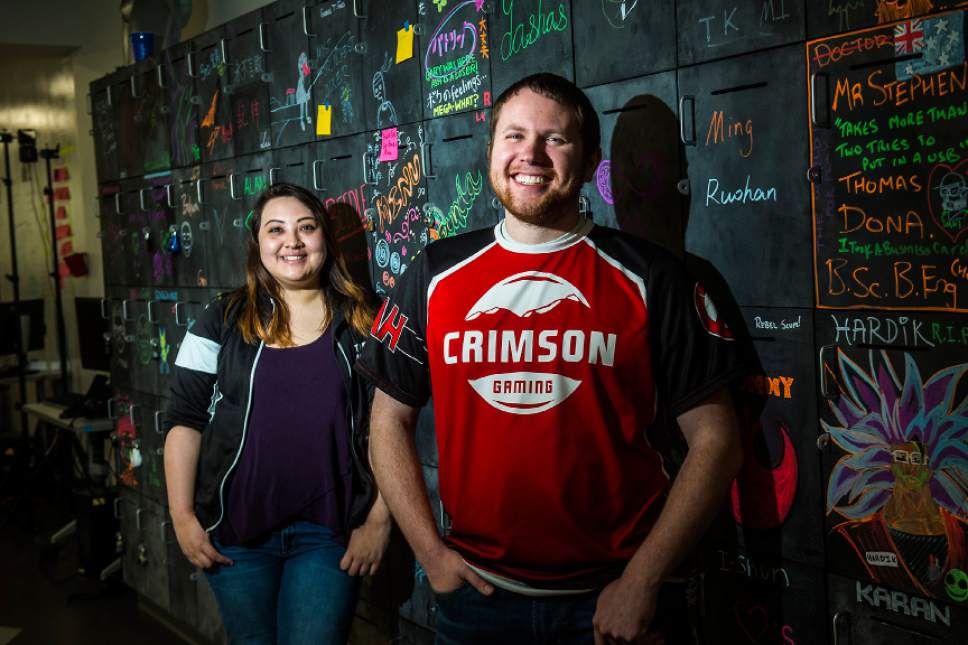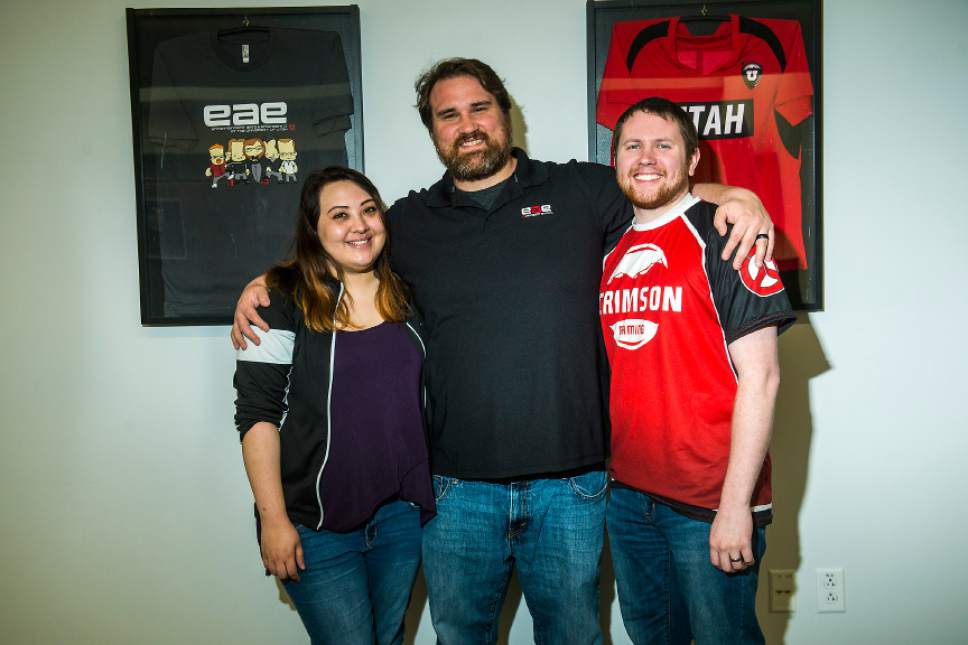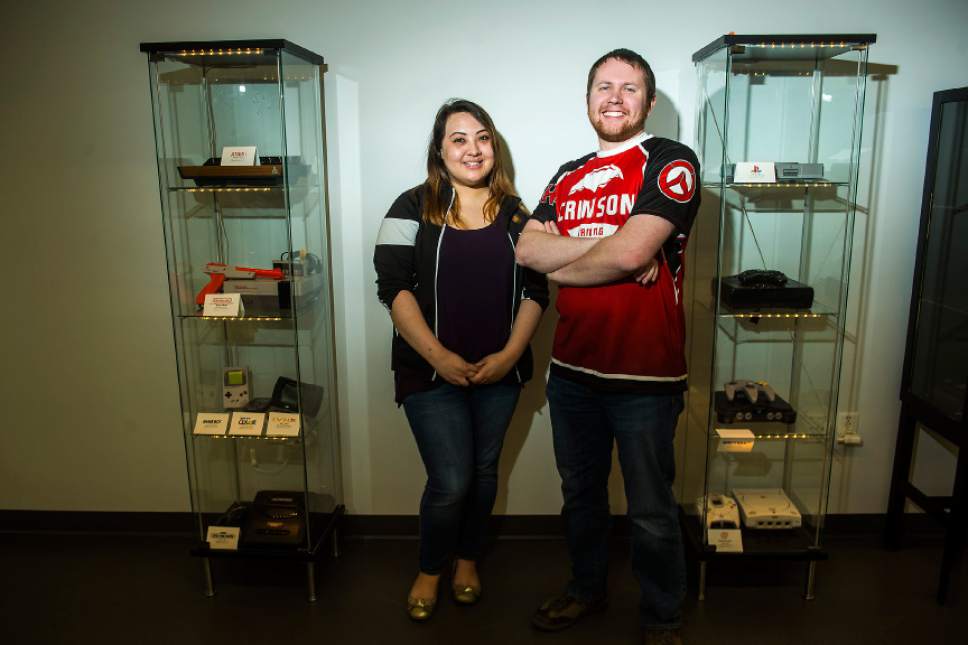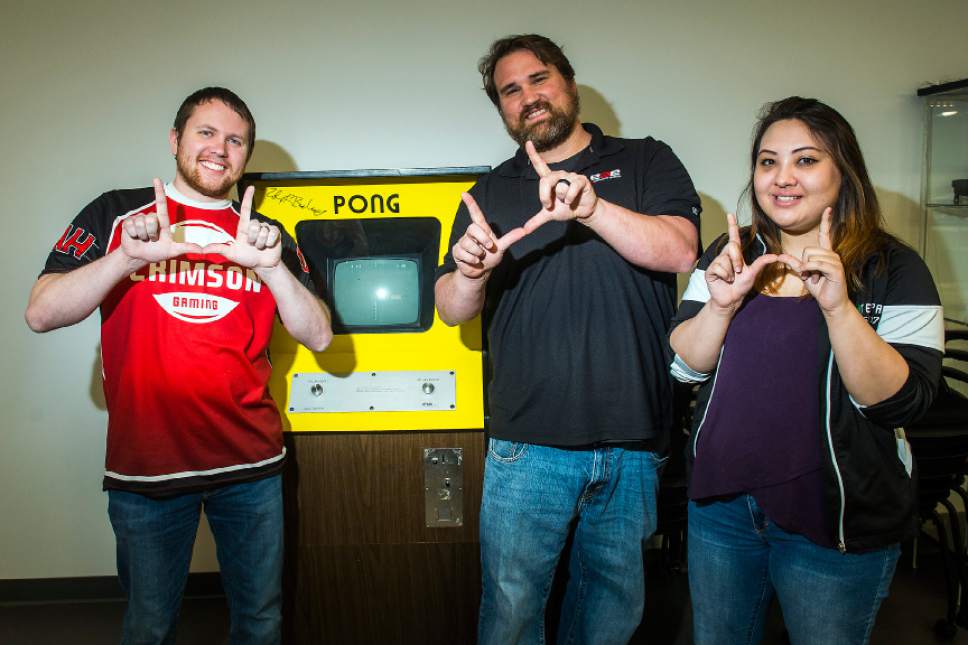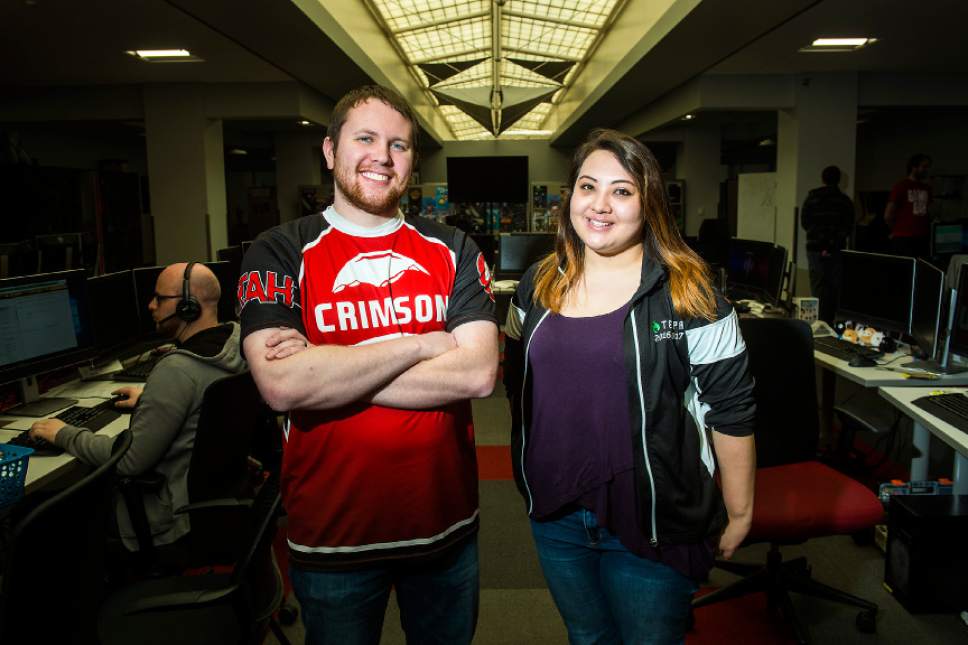This is an archived article that was published on sltrib.com in 2017, and information in the article may be outdated. It is provided only for personal research purposes and may not be reprinted.
The University of Utah will be the nation's first Power Five conference program to offer a varsity esports team — student-athletes competing in video and computer games just like their counterparts on the court and field.
Angela Klingsieck says she doesn't want the U.'s pioneering move into the world of esports to remain unique for long — instead she hopes that universities embrace gaming as an obvious addition to NCAA standbys like football and basketball.
"I don't think it should be odd that any sort of player — a chess player, a lacrosse player, a football player or a 'League of Legends' player — to be able to support and represent their university in an official capacity," said Klingsieck, executive director of the U.'s Crimson Gaming club.
The U.'s program is kicking off with the popular online battle game "League of Legends," but students will eventually battle it out in four games. Competition will start in the fall 2017 semester — with players coming from Crimson Gaming and recruited from current high school ranks.
A.J. Dimick, who will guide the varsity team, said he hopes Utah's efforts will "push some people over the edge" to follow and eventually create centralized governance and the traditional infrastructure afforded established sports in Division I.
"We've done a lot of groundwork to make gaming popular here and a big part of the campus presence," said Dimick, a spokesman for the Entertainment Arts & Engineering program, "and that made it a very easy leap."
Gamers will receive partial scholarships to start, but the eventual goal is to have "over 30" student-athletes and coaches on scholarship, Dimick said.
Klingsieck co-founded the Crimson Gaming club in fall 2013 as a "League of Legends" fan club and a chance for gamers to socialize with one another. She's since seen it grow to more than 600 registered members who compete in national competitions — as well as in more relaxed environments — in a variety of games.
"We've done a lot of groundwork to make gaming popular here and a big part of the campus presence," said Dimick, a spokesman for the Entertainment Arts & Engineering program, which is one of the top-ranked video-game design programs in the country.
Pac-12 commissioner Larry Scott said in May 2016 that "esports is a natural fit for many of our universities located in the technology and media hubs of the country." But outside of Utah, only non-Power Five universities have so far created official varsity programs. Power Five includes the ACC, Big Ten, Big 12, Pac-12 and SEC.
Colleges that already have varsity esports programs include: Columbia College (Missouri); Robert Morris University (Illinois); University of Pikeville (Kentucky); Maryville University (Missouri); Southwestern University (Texas); University of California, Irvine; Tiffin University (Ohio); Midland University (Nebraska); Southwest Baptist University (Missouri); Indiana Tech; Miami University (Ohio); and Lourdes University (Ohio).
Aspirations for the U.'s varsity team are big — Dimick hopes the program will become self-sustaining and crack the mainstream sports market as "one more way to be a Ute fan."
Klingsieck, too, has lofty goals — that Utah's foray into collegiate esports competition in the NCAA's highest division will yield results at the high school, university and professional levels.
"There's a lot of bravery in this initiative because it takes a lot to stick your neck out there and be the first," she said.
Twitter: @BrennanJSmith


